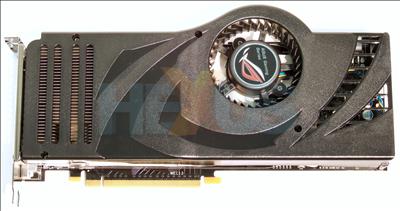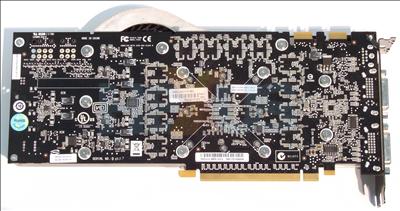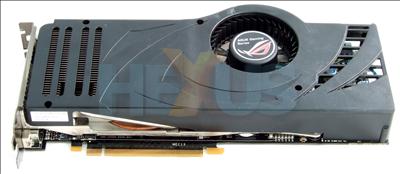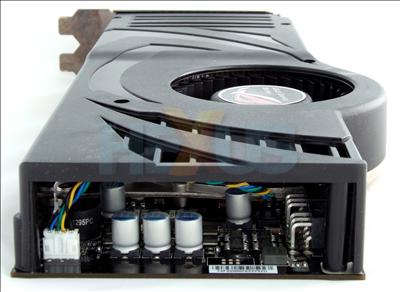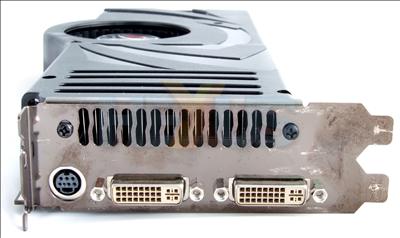ASUS EN8800ULTRA appearance and thoughts
ASUS keeps the reference-clocked theme going by running default frequencies (612/1500/2160) on its NVIDIA GeForce 8800 Ultra.
The big cooler keeps the underlying G80 core cool without making a racket. The under-load fan-speed doesn't change noticeably from the low hum exhibited in 2D. Good, efficient design; just make sure your chassis has room for it.
NVIDIA asserted that it's reworked part of the core for better thermal management. As such, it claims, the higher-clocked Ultra runs off a slightly lower TDP - 175W vs. 177W - when compared to the GeForce 8800 GTX.
The heatsink obscures 768MiBs of GDDR3 memory that runs at a faster speed than the Radeon HD 2900 XT's but interfaces with a narrower memory bus - 384-bit vs. 512-bit. The upshot is that both cards produce over 100GB/s of juicy bandwidth; great for antialising and super-high resolution gaming.
The all-black appearance and full-length cooling appendage gives the Ultra a mean, mean look. It costs £420, so your bank manager might also give you the same look.
Warm air is exhausted from the vent you see at the top of the backplate. Both DVI ports are dual-link but, unlike the Radeon HD 2900 XT, can only carry HDCP-protected signals over a single-link connection. Still, though, there's more than enough bandwidth for 1080p transfers.






